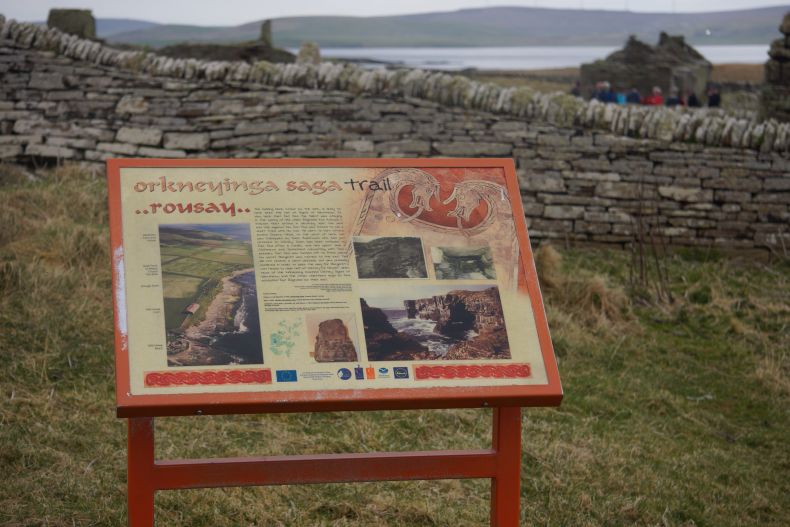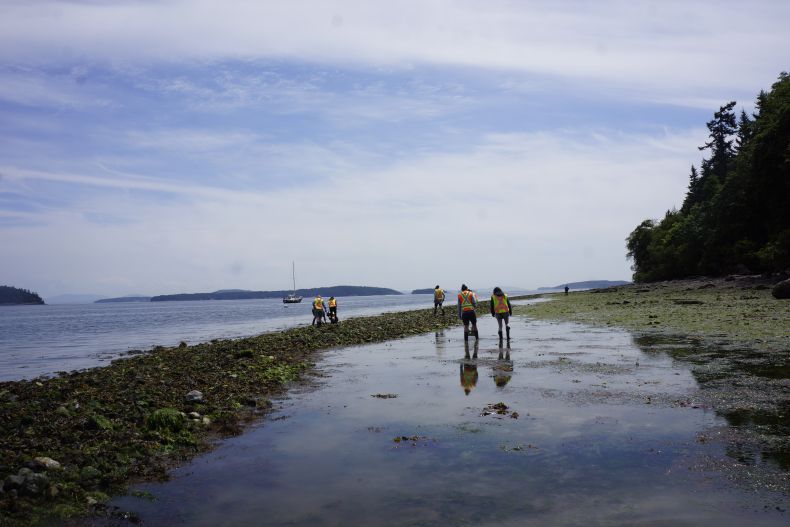The author(s) will give a talk
Northern knowledge for resilience, environmental sustainability and adaptation in coastal communities (NORSEACC)
1 Royal Roads University, Canada
2 INSTAAR, CU-Boulder and Stefansson Arctic Institute, Akureyri, Iceland
3 Royal Roads University
NORSEACC is an interdisciplinary, international research project that investigates the role of knowledge (local, Indigenous/traditional, scientific) and governance in promoting resilience and adaptation to rapid environmental and social change in northern coastal communities. The project focuses on in-depth case studies of northern communities in their regional context, in Arctic and sub-Arctic locations in Canada, Iceland, Norway and Orkney, Scotland. Research partners in these countries are working with Indigenous and non-Indigenous coastal peoples to identify and communicate promising practices to respond to rapid environmental and social change. The NORSEACC project is documenting the ways in which Arctic processes and changes create significant impacts also beyond the Arctic, including northern coastal communities in lower latitudes and societies globally. NORSEACC is thus set in the context of global and Arctic change. The overarching goal of NORSEACC is to increase knowledge concerning the consequences of climatic, social, economic, and other related changes and implications for governance of northern coastal societies. A further research goal is to understand present and potential future linkages between climate processes and social adaptations in coupled social-ecological systems.
The primary research question is: How can governance systems and strategies be designed and implemented to incorporate local, Indigenous/traditional and scientific knowledge in order to promote resilience in the face of rapid social and ecological change in northern coastal communities? Further questions include: i) What past environmental, social and economic changes have northern coastal communities experienced? ii) How have they adapted to these changes? iii) How is knowledge (local, Indigenous/traditional, scientific) both present and past, incorporated into governance systems and policy? iv) How does knowledge concerning past change inform and influence (if not determine) present and future strategies for adaptation and sustainability? v) In northern coastal communities, what factors, including institutional and governance factors, influence resilience and successful adaptation to rapid environmental and social changes?
To answer these questions we are drawing on social ecological systems (SES) theoretical perspectives that focus on drivers of, and responses to, changes in such systems (Berkes et al., 2003; Ostrom, 2009; Moore et al., 2014). NORSEACC also makes use of the concepts and methods of panarchy to explore transformations in human-ecological systems. Panarchy provides a theoretical framework for understanding sustainability that integrates SES with economic, ecological and social aspects at various time scales (Gunderson and Holling, 2002). Thus our theoretical framework links and integrates perspectives on knowledge, governance, resilience, adaptation, and sustainability through an historical as well as a future-oriented lens. NORSEACC is designed to address a specific knowledge gap: a paucity of assessments regarding the extent to which co-management governance innovations incorporate different forms of knowledge to promote community capacity, resilience, and sustainability. This will be achieved by addressing interdependent dynamics of those systems in a comprehensive way and then identifying the relevant knowledge systems (King, 2004; Murray and King, 2012; Cruikshank, 2005) that form the basis for governance.
NORSEACC uses a case-study methodology, encompassing both qualitative and quantitative approaches. The project case studies include information from inter alia, climate records, socio-economic data, environmental and social histories of settlement encompassing human eco-dynamics, major ecological and social events and trends, evidence of adaptations or failure to adapt to past change, local and traditional ecological knowledge, perceptions of residents and policy-makers, governance institutions at local through international levels and assessments of best potential practices for capacity building for sustainability. Primary data are collected through interviews and focus groups with local residents and decision-makers in the areas of sustainability, disaster management, planning, environment, and economic development. Collected data are used to illustrate the changes and responses experienced by case-study communities over time, and to identify elements that either promote or discourage sustainability.
Preliminary findings indicate that the success of adaptation initiatives depends in large part on alignment with community values and beliefs as well as incorporating those values and knowledge systems into governance at local and regional levels. Examples include, Haida Gwaii, Canada where the Haida are particularly notable for reinforcing and incorporating ancient laws and values into current responses to climate and biodiversity challenges. In the Orkney Islands, northern Scotland, recognition of past knowledge has led to innovative and unique climate solutions. Iceland has a unique environment dominated by ice (glaciers and, especially in the past, sea ice) and fire (volcanoes) and is renowned for its literary traditions, in particular the magnificent Icelandic sagas. The research investigates the influence of this physical and social history on current environmental practices and policies.
NORSEACC is filling a knowledge gap by identifying best potential practices for adaptation to climate change and other rapid changes in northern coastal communities. The focus on knowledge for governance is innovative, and the in-depth analysis of community responses is contributing to a deeper understanding of social-ecological systems under stress. In particular, the project is integrating a number of different community dynamics and factors that will provide a comprehensive viewof past and present change and effective responses. NORSEACC is engaging communities in reflection and discovery concerning strategies that promote sustainability, resilience and successful adaptation to rapid social-ecological changes. By understanding environmental causes and impacts of change, communities will be better prepared to address those changes in ways that lead to environmental and social sustainability. Environmental outcomes may include improved infrastructure sustainability and community planning, enhanced disaster response capacity, improved forecasting of anomalous weather events, and new strategies for adaptation and mitigation of climate-change impacts. Innovative policies will be enhanced through collaborative processes to improve decision-making and socio-ecological governance. Policy and decision makers will interact, share successful and unsuccessful strategies, and learn about potential governance and livelihood opportunities. Such social learning will enhance the capacity to respond to present and future changes and challenges.
Berkes, F., Colding, J. and Folke, C. (eds.), 2003, Navigating Social-Ecological Systems: Building Resilience for Complexity and Change, Cambridge, UK, Cambridge University Press.
Cruikshank, J., 2005, Do Glaciers Listen? Local Knowledge, Colonial Encounters and Social Imagination, Vancouver: UBC Press.
Gunderson, L. H. and Holling, C.S., 2002, Panarchy: understanding transformations in human and natural systems, Washington DC, Island Press.
King, L., 2004, Conflicting Knowledge Systems in the management of Fish and Forests in the Pacific Northwest: International Environmental Agreements: Politics, Law, and Economics, 4, 161-177.
Moore, M.L., Tjornbo, O., Enfors, E., Knapp, C., Hodbod, J., Baggio, J.A., Norström, A., Olsson, P. and Biggs, D., 2014, Studying the complexity of change: Toward an analytical framework for understanding deliberate social-ecological transformations: Ecology and Society, 19(4): 54. http://dx.doi.org/10.5751/ES-06966-190454
Murray, G. and King, L., 2012, First Nation Values and Protected Area Governance.Tla-o-qui-aht Tribal Parks and Pacific Rim National Park Reserve: Human Ecology, 40(3), 385-395.
Ostrom, E., 2009, A General Framework for Analyzing Sustainability of Social-Ecological Systems: Science, 325(5939), 419-422.
Fig 1.
Sea Lion Town Haida Gwaii

Fig 2.
Orkneyinga Saga Trail, Rousay, Orkney

Fig 3.
Clam Garden and students